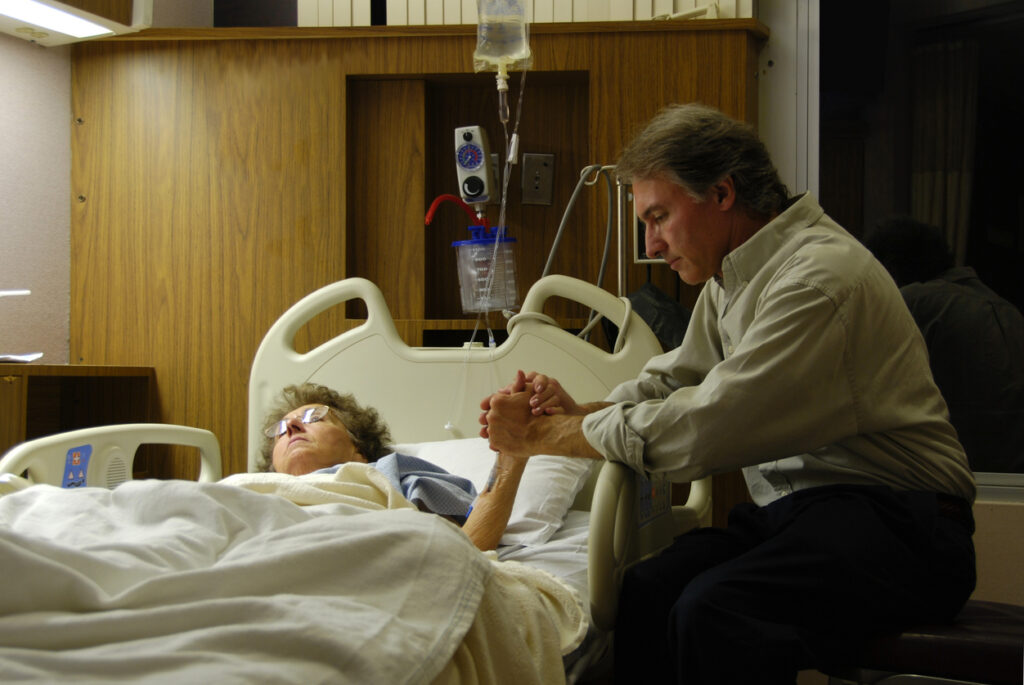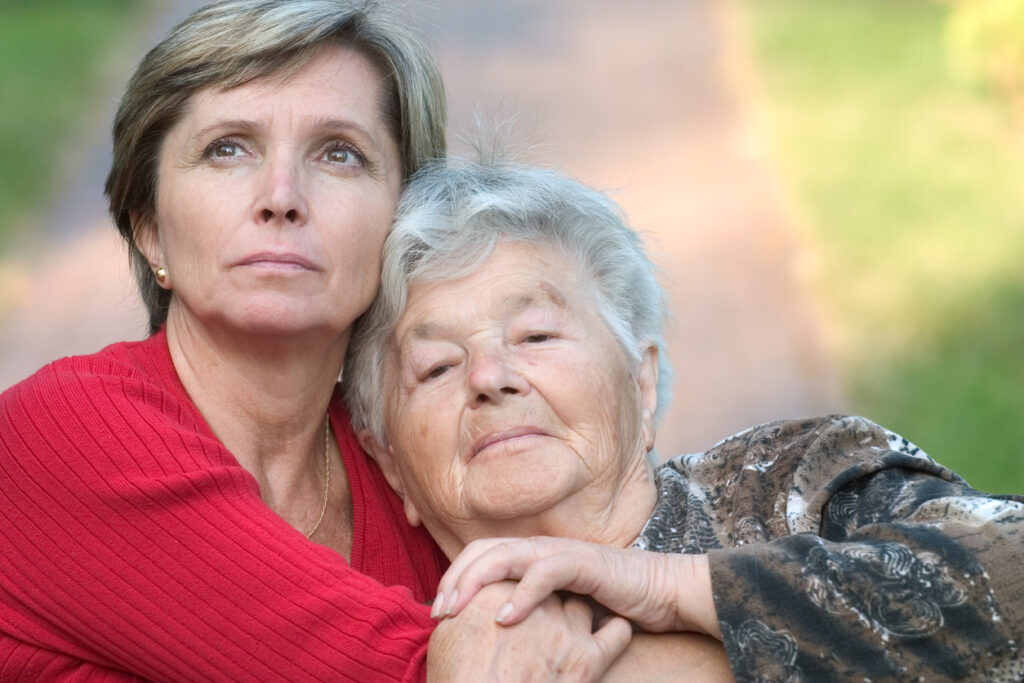Without careful planning, these hidden obstacles could leave you overwhelmed, burnt out, and questioning everything.

You think you’re ready to take care of your aging parents? Think again. What may begin as a heartfelt commitment to be there for the ones who raised you can quickly spiral into a nonstop, high-stakes juggling act. Caring for elderly parents is not just about helping with meals or giving them rides to doctor’s appointments—it’s about emotionally managing their decline, financially preparing for unforeseen challenges, and rearranging your entire life to accommodate a role you may not feel equipped for.
Many adult children step into the caregiver role without understanding just how intense and all-encompassing it becomes. The daily responsibilities pile up, medical decisions weigh heavily, and your own life begins to blur in the background. From emotional landmines to financial stress and the hidden toll on your mental and physical health, these 12 challenges can completely overwhelm you if you’re not ready. Being proactive isn’t just helpful—it’s essential.
1. You’re Not Ready for the Emotional Rollercoaster Caring for Them Will Throw You On

At first, caregiving may feel like a noble or loving duty, but before long, you might find yourself swept up in a storm of emotional highs and lows. There will be days filled with gratitude and connection—but also ones dominated by sadness, frustration, and guilt, as stated by Susan Meyer at The Zebra. Watching your parents become less independent and more vulnerable brings a kind of grief that’s slow and relentless. It forces you to reconcile the strong figures from your childhood with their current fragility, which can trigger deep internal conflict.
You may feel torn between compassion and resentment, especially if caregiving disrupts your personal goals. That inner tension can build if you don’t take steps to process it. Therapy, journaling, and open conversations with others who have walked the same path can give you clarity. You need space to express your emotions without judgment. The better you manage your emotional health, the more strength and grace you’ll bring to this incredibly complex role.
2. You’ve Underestimated the Financial Burden of Their Care

The cost of caregiving goes far beyond what most people expect. Even if your parents have some savings, unexpected expenses—like specialized equipment, transportation, medications, or in-home nursing—can pop up constantly. If you’re not prepared, these costs can slowly chip away at your own financial stability, as mentioned by Joelle Klein at UC Health. You may even find yourself dipping into your retirement fund or sacrificing career opportunities just to stay afloat.
Ignoring the financial reality can be dangerous. You need to start conversations with your parents early, even if they’re uncomfortable. Find out if they have long-term care insurance, understand what Medicare or Medicaid will cover, and set up power of attorney so you’re legally empowered to manage money on their behalf if needed. Consider talking to a financial advisor who specializes in eldercare. Planning now can help you avoid being blindsided by massive, emotionally charged decisions later.
3. You Didn’t Realize How Much of Your Time Would Disappear

You might think caregiving is something you can squeeze into your day—but it doesn’t work like that. A quick check-in can evolve into hours managing prescriptions, navigating insurance paperwork, preparing meals, and providing emotional support. Suddenly, you’re missing social events, turning down work opportunities, and losing track of your own needs, as reported by Mary Jo DiLonardo at WebMD. Time slips away unnoticed, and with it, parts of your life you once valued.
Without time boundaries, caregiving can swallow you whole. That’s why it’s so important to build a structured plan from the beginning. Set specific hours for caregiving duties and leave space for your personal life, hobbies, and rest. If you have siblings or close family, talk openly about splitting responsibilities. Even partial help—like a few hours a week from a visiting nurse—can make a huge difference. Protecting your time isn’t selfish. It’s how you stay strong enough to be there in the long run.
4. You’re Not Prepared for the Physical Toll It Will Take on You

Caregiving may not seem physically demanding at first—but try lifting someone from bed, guiding them to the bathroom, or helping them dress multiple times a day, and it adds up fast. Repeated strain on your body, combined with poor sleep and limited time to exercise, can wear you down until exhaustion becomes your baseline. You may begin neglecting your own physical needs just to keep up.
This physical toll can be dangerous, especially if you ignore it. Learning safe ways to assist with movement, investing in ergonomic equipment, and accepting help from professionals isn’t optional—it’s essential. Make space in your routine for light exercise and physical therapy if needed. Listen to your body before it starts shouting. You can’t care for someone else if your own body is breaking down under the weight of that care.
5. You Don’t Know How to Handle Their Changing Personalities

Aging can dramatically affect mood, memory, and personality. Your once-easygoing parent might become irritable, confused, or paranoid. Cognitive decline—like dementia or Alzheimer’s—can make them lash out or retreat emotionally, leaving you heartbroken and unsure of how to respond. It’s disorienting to see someone you love act like a stranger.
Understanding what’s behind these behavioral changes is crucial. These shifts are often symptoms of brain changes, not personal attacks. Educate yourself on age-related mental health issues and how to respond with empathy rather than frustration. Use calm, clear communication and don’t take their reactions personally. It helps to talk to others in similar situations or join support groups where people share coping strategies. Reminding yourself it’s the illness, not the person, is how you stay compassionate in the face of change.
6. You Haven’t Planned for Medical Emergencies—and They Will Happen

Sudden hospital trips, falls, infections, or medication reactions are part of the reality of caring for older adults. And when they happen, panic often replaces clear thinking. If you’re caught off guard—without updated medical information, legal documents, or a plan—you’ll be scrambling under pressure, which can lead to mistakes and added stress.
That’s why emergency preparedness is non-negotiable. Create a file with key health records, medication lists, allergy info, insurance cards, and legal directives like power of attorney or DNR orders. Share it with other trusted family members and make it easily accessible. Run practice scenarios in your mind so you’re not frozen when the moment comes. Being prepared not only helps your parent—it helps you make calm, informed decisions when everything else feels out of control.
7. You’re Not Expecting the Strain It Will Put on Your Other Relationships

You might assume your partner, kids, or friends will understand the demands of caregiving—but over time, the cracks can show. Your emotional bandwidth shrinks, your availability drops, and the people closest to you might start feeling neglected or confused. They may even resent your absence or feel powerless to help you.
Clear communication is key to avoiding emotional distance. Let your loved ones know what you’re going through. Be honest about your limitations, and don’t be afraid to say, “I need help.” Schedule quality time with your spouse or kids, even if it’s short. Use tech to stay connected with friends. You can’t be everything to everyone, but you can protect the most important relationships by making intentional, regular efforts to stay emotionally present with them.
8. You Didn’t Anticipate How Lonely It Can Get

Caregiving is often solitary work. Your world can slowly shrink until your days revolve around medications, meals, and mood swings. Without meaning to, you start saying “no” to invitations and drifting from your social circles. The loneliness is subtle but powerful, and it can sneak in even when you’re physically surrounded by people.
That kind of isolation takes a toll on your mental health. You need a social life outside of caregiving to stay emotionally balanced. Schedule regular breaks to connect with friends, even virtually. Join caregiver forums where people truly understand your situation. Consider counseling if the isolation begins to affect your well-being. You’re not alone—but you have to take steps to make sure you don’t feel that way.
9. You Don’t Realize How Overwhelming Their Medications Will Be

At first glance, keeping track of prescriptions doesn’t seem complicated—but as the medication list grows, so does the stress. Different dosages, refill schedules, food restrictions, and potential side effects can quickly become a daily maze. One small mistake—like a missed pill or wrong timing—could cause real harm.
To stay on top of things, put systems in place early. Use labeled pill organizers and medication tracking apps, and set alarms or calendar reminders. Keep a detailed list of current meds and update it after every doctor’s visit. Bring a copy to appointments and pharmacies. Organization is your best defense against accidental errors—and it gives you peace of mind when everything else feels uncertain.
10. You Didn’t Expect the Constant Decision-Making Fatigue

Choosing doctors, navigating treatments, managing daily routines, and fielding endless questions—all of it adds up to a relentless stream of decisions. Over time, your brain gets tired. You second-guess yourself. You worry about making the wrong call. And eventually, even the simplest choices begin to feel like mountains.
That’s called decision fatigue, and it’s very real. One way to fight it is to simplify where you can. Create routines for meals, medications, and appointments so you don’t have to start from scratch every day. Delegate small decisions to others when possible, and don’t be afraid to trust professionals for guidance. You don’t have to solve everything alone. Give yourself permission to do your best, not be perfect.
11. You’re Not Ready for the Guilt That Comes with Wanting a Break

You love your parents and want to be there for them—but you’re also human. You need time to rest, recharge, and live your own life. The problem is, many caregivers feel crushing guilt for stepping away, even temporarily. It feels like a betrayal, even when you know logically it’s not.
But guilt is a normal part of caregiving, and it doesn’t mean you’re failing. Taking a break isn’t about abandoning your role—it’s about sustaining it. Look into respite care options or ask trusted friends and family for temporary coverage. Even a few hours can make a difference. Self-care is how you stay strong enough to keep going. You can’t give your best if you’re running on empty.
12. You Haven’t Prepared for the Inevitable Grief

Whether it’s the loss of your parent or the slow erosion of who they once were, grief is a constant undercurrent in caregiving. You may feel it as anticipatory grief long before they pass. And if you haven’t allowed yourself to process that sorrow along the way, it can hit you like a tidal wave when the time finally comes.
The sooner you begin acknowledging your feelings, the better equipped you’ll be. Talk about end-of-life preferences with your parents, even if it’s uncomfortable. Read books, attend workshops, or speak with a grief counselor. Don’t wait until you’re emotionally flooded to begin healing. Preparing doesn’t lessen the sadness—but it gives you a place to stand when the ground shifts beneath you.
